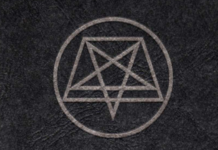 Satanism is a federally recognized religion in at least one form; it is no more a “cult” than is any other minority religion (such as Wicca, Baha’i, Jainism, or Pantheism). Its adherents are not isolated psychopaths drooling in their basements; on the contrary, the number of publicized Satanic organizations is easily near 100 and non-publicized organizations would probably bring it up to thrice that number. Satanists tend to be of somewhat above average intelligence, judging from those people I myself have met, and successful in their current station in life. While some may indeed dress ‘Goth,’ with pale makeup and dark clothing and black lipstick, and while some may indeed be heavy-metal loving teenagers, these stereotypes are just that — stereotypes. There are Satanists who love classical music and jazz, Satanists who like wearing florals, and Satanists who are distinguished business(wo)men with briefcases and portfolios.
Satanism is a federally recognized religion in at least one form; it is no more a “cult” than is any other minority religion (such as Wicca, Baha’i, Jainism, or Pantheism). Its adherents are not isolated psychopaths drooling in their basements; on the contrary, the number of publicized Satanic organizations is easily near 100 and non-publicized organizations would probably bring it up to thrice that number. Satanists tend to be of somewhat above average intelligence, judging from those people I myself have met, and successful in their current station in life. While some may indeed dress ‘Goth,’ with pale makeup and dark clothing and black lipstick, and while some may indeed be heavy-metal loving teenagers, these stereotypes are just that — stereotypes. There are Satanists who love classical music and jazz, Satanists who like wearing florals, and Satanists who are distinguished business(wo)men with briefcases and portfolios.
Satanism is not a unified entity. As much as some people would like to believe there is some Satanic High Council working towards global domination and manipulating the world leaders, it’s just not true. Satanism has several major traditions, or denominations, some of which are more popular than others, and all of which are very different from one another yet claim the title “Satanism.” Satanic denominations are, in all likelihood, more dissimilar from each other than the majority of Christian denominations (and, in fact, we have a lot of the same in-fighting, as much as some of us are trying to prevent it). Some believe in no gods; some believe in abstract forces; some believe in an ancient, pre-Christian being; and some believe in the Biblical Satan. Not all Satanists are devil-worshippers, and not even all devil-worshippers are Satan-worshippers.
Satanism and Christianity
I include this section here as the only section I will include regarding Christianity in the “public learning” pages — and I include it only because it comes up again and again and again (and we Satanists are very tired of explaining this). So, listen closely:
Satanism is not just Christianity in reverse. Granted, a lot of Satanists dislike Christianity: this is largely because of how unjust the Christian mindset is to non-Christians, and opposition to some common Christian values, which (to Satanists) just seem wrong. But not all Satanists hate all Christians, and very few Satanists which I know really care that much about Christianity. Unfortunately, the constant hounding of the media, Hollywood, the Christian Coalition, and people who know no better, have branded this error into the public mind. Which brings up one of the favourite questions of people who are not very well acquainted with Satanism…
Why Satan?
Different denominations of Satanism, as well as different people within those denominations, use the title “Satanist” for different reasons! Some denominations view “Satan” as a convenient name for an ancient deity who they have decided to worship for whatever reason. Some denominations view “Satan” as the Christian devil/fallen angel who rebelled and now resides in Hell. (For your information, the denominations which actually worship a being called Satan are generally referred to as the Traditionalists.) Some groups (notably the LaVeyans) believe that “Satan” is a convenient name for a ‘dark force’ in nature….a type of impersonal, powerful energy to be respected and tapped, but not an anthropomorphic god to be worshipped and obeyed. Still others are completely atheistic; they believe in no god, good or evil, nor any spiritual realm. A few use the name because they emphasize with the character of Lucifer, the noble hero, the bringer of knowledge. The list goes on, and on, and on…. The one thing all of these views have in common is that the character of Satan (no matter how you define this entity/force/fictional character) appeals to them. Perhaps it’s the emphasis on “darkness.” Perhaps the emphasis on knowledge, or on carnality, or on materialism, or on self-empowerment. Whatever Satan means to them, they like it.
(Snipped from an email from the Aurora-L mailing list at Onelist.com)
[…]personally speaking, it seems to me that most Satanists do not call themselves such as a reflection of the *core* of their spirituality, but rather the *effect* of their spirituality. That is, they are not worshipping the “Opponent,” but the fact that they have dared to follow their own faith at all — especially one so unlike the mainstream local religion (Christianity — speaking as a US Satanist) that they are made by default into the bad guy, the accuser, the opponent. We do not choose our beliefs so that we may be the Opponent, but are made the Opponent by choosing our beliefs. And thus is comes back down to the Hebrew meaning of the wordform “stn” — the opponent, the accuser, the adversary.
To give an example, I was flipping through religious articles yesterday. About half of them concerned “satanic sex cults” who were “pushing drugs” in school and “recruiting” youth to corrupt them. Ban the pentacles! They’re Satanic. Ban the Satanic Bible! Who knows what damage it could do to young minds. Ban heavy metal! We all know it contains messages of murder. Don’t let a Satanist live in your neighbourhood — your pet Fluffy will end up on an altar. A good 15 articles on how “bad” Satanists were.
Now, if you actually talk to a Satanist, you’ll probably learn that Satanists generally frown upon drug use, and especially on drug *abuse* — it interferes with your mental abilities, which is undesirable. Sex is up to the individual, but should be consensual (children and animals are usually considered unable to consent — so are people being “forced into sex cults”). Recruiting youth? Most Satanic organizations I know won’t touch a minor with a 10 foot pole without extensive documentation that the parents are aware of what’s going on, and accepting of it. Damaging to minds? Only if you’re afraid of other viewpoints. Animal sacrifice? Very uncommon, if it exists at all nowadays.
But despite this information, which is widely available for anyone who has access to a Satanic friend, the Internet, or even a bookstore, no one *wants* to believe it. In my view, people want a scapegoat. They want something to be afraid of. Since everyone “knows” that Satan is the Prince of Evil (without having “done their homework” on any other views of it), Satanists must also be evil and nasty. If we weren’t….why, what about Satan? Maybe Satan’s not bad either? And then the whole “Evil versus Good” duality would hit the fan, and we can’t have that. They MUST paint us as the “evil other,” the “accuser,” the “opponent,” even if we ourselves don’t view ourselves as actively holding that role. To us, we’re just normal people who for whatever reason, like the figure of Satan. To them, we’re the “adversaries.”
And thus the name.
Tenets of Faith
As mentioned before, Satanic denominations or traditions usually vary from one another in very significant ways. It’s very difficult to say “all Satanists believe (insert item here).” So keep in mind that as I’m writing this, I’m not perfect and I’m not all-knowing. Take this with a grain of salt, but I’ll be as accurate as I can:
- Satanists believe in autonomy of the individual. Individuals are unique, and precious. One should attempt to know oneself, and to develop one’s skills, talent, and character to the utmost. Some people are natural leaders; some are natural followers. Those who are masters should strive to be such, and those meant to tag behind should recognize this and be content in their true nature. But no one should attempt to unnecessarily restrict one’s own nature (I say “unnecessarily” because living in society does impose some regulations on actions which must be obeyed if one wishes to continue to live). This includes such things as sexual restrictions, religious restrictions, political restrictions, etc. Of course, it’s not a requirement that people LIKE what you believe, but that which you wish to be and believe, you should be free to do.Note: This is where a great many Satanists have issues with evangelism…forcing someone to listen to your beliefs when they don’t wish do, or constantly going on when asked to stop, is in effect “imposing” yourself upon the other person, and attempting to nullify their autonomy. If you are trying to “reach” a Satanist, witnessing is not the way to go.
- Satanists believe in striving for perfection of self (power). If you’re good at what you do, you’ll be successful. We all have the ability to be good at SOMETHING; we all have our abilities and weaknesses. The truth of the world is that the weak seldom get anywhere, unless they turn that very weakness into a strength of some sort. Being as good as possible at everything, however, gives you a MUCH greater chance at being successful and pleased with yourself. Saying “I’m not good at anything, but I deserve respect anyway!” is not really a very Satanic view. It’s great that you realize you’re not good at anything, but why should anyone respect that? What have you done to earn that respect? DO something, BE something, ACHIEVE something…then you’ll have respect. Being a failure and doing nothing to change that results in a lifetime of…well….being a failure.
- Satanists believe in ‘gifts’ unto the deserving. Respect, love, friendship, monetary awards, political power…you must EARN IT!! Whether this is by personal prowess or faithful worship of Satan or some other method, all things worth any important must be earned. To give something away freely to those who are undeserving or ungrateful does nothing but cheapen the gift, until it means nothing at all. What power is there behind “I love you” if you love everyone? What value is money, if everyone has all they want of it (think “inflation”)? Certainly, a certain amount of recognition to another person as a living, sentient being is in order, but if you want something special, be prepared to show that YOU are something special, as well.
- Satanists believe in Lex Talonis. Lex Talonis is a Latin phrase meaning “Law of the Talon,” or, in other words “eye for an eye.” Swift and fair, if brutal, justice. Today’s penalty system, for most Satanists, is much too lax. One can do anything from shoplift to murder, and usually either get judged innocent, get set free on probation, or get cared for (food, bed, housing) for the rest of your life in jail. If you’re going to punish people, then PUNISH THEM! Don’t give them a slap on the wrist! Satanists believe in personal responsibility and accountability; that is, one is fully responsible for one’s own actions, and should be aware of and acknowledge that fact. If you want to break the law, then break it! But be prepared to face the consequences. If you want to have unprotected sex, do it! But beware of possible diseases and pregnancy. Any action you take will have some ramification in your life; this does not curtail you from doing as you wish, but you must be prepared to answer to any issues which arise due to your actions.
- Satanists believe “Satan” represents the admirable qualities of mankind. Satan is generally seen as representing pride, self-sufficiency, individuality, free-will, knowledge, and power. Many non-Satanists have trouble understanding how a traditionally “evil” figure can be regarded as positive, but this is how we see it. Such things as pride, ambition, and seeking knowledge is not considered evil by Satanists; on the other hand, false humility, wallowing in ignorance, and the like are considered bad traits to possess.
image credit: DinosaursAreNotDead








